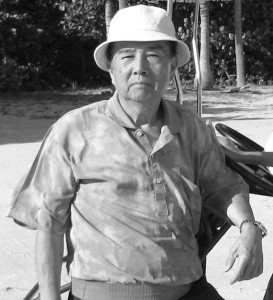Senior Rachel Chiou’s grandfather, Li-Tze Wang, currently resides in Taiwan. He was 15 years old when he passed the test that allowed him to join the Japanese army. This interview was conducted in Chinese and translated into English.
 “[The Japanese] were always propagandizing, “For honor, for honor!” I was in eighth grade, and everyone was saying, “Love your country, and gain honor for your country,” so we all took the test [for the army]. It took about three days: The first two days were a test of your health and physical strength, and if you weren’t healthy or if you were too weak, they wouldn’t want you—they said they couldn’t have clumsy airplane fighters in the sky. Then they tested your intelligence … and only the smartest were chosen.
“[The Japanese] were always propagandizing, “For honor, for honor!” I was in eighth grade, and everyone was saying, “Love your country, and gain honor for your country,” so we all took the test [for the army]. It took about three days: The first two days were a test of your health and physical strength, and if you weren’t healthy or if you were too weak, they wouldn’t want you—they said they couldn’t have clumsy airplane fighters in the sky. Then they tested your intelligence … and only the smartest were chosen.
“Your parents also had to agree for you to take these tests, but it wasn’t until after I finished the test that I told my grandfather. He was so mad, but he couldnít actually do anything at that point because I was already accepted. But you know, we had to take a boat to the training grounds, and the American Navy had the blockade so close to us, so [the army] kept pushing off the date for our training for over half a year, [and shortly after that, the Japanese surrendered] so I never actually got to go into the war.
“About 60 to 70 of us signed up, and at the end only one was accepted into the navy and two into the army. I got into the armyís air force.
“At the time, I was really happy and proud—I was just a kid. I got to fly an airplane, which everyone thought was really cool, but it wasn’t until many years later that I realized what flying a plane for the Japanese fleet might have meant—flying that plane toward American boats and then diving right into them. Now that Iíve grown up and looked back, itís actually kind of scary.”





